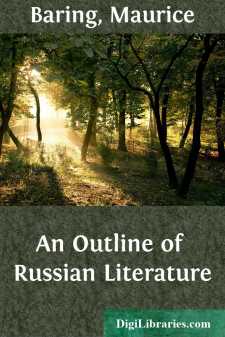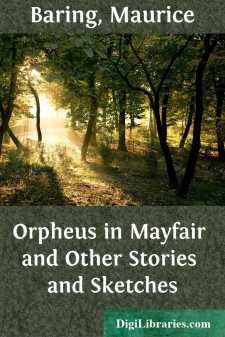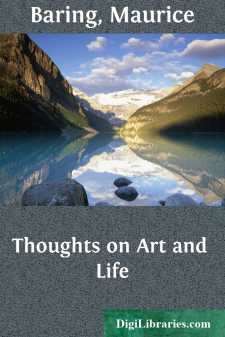Categories
- Antiques & Collectibles 13
- Architecture 36
- Art 48
- Bibles 22
- Biography & Autobiography 813
- Body, Mind & Spirit 142
- Business & Economics 28
- Children's Books 15
- Children's Fiction 12
- Computers 4
- Cooking 94
- Crafts & Hobbies 4
- Drama 346
- Education 46
- Family & Relationships 57
- Fiction 11829
- Games 19
- Gardening 17
- Health & Fitness 34
- History 1377
- House & Home 1
- Humor 147
- Juvenile Fiction 1873
- Juvenile Nonfiction 202
- Language Arts & Disciplines 88
- Law 16
- Literary Collections 686
- Literary Criticism 179
- Mathematics 13
- Medical 41
- Music 40
- Nature 179
- Non-Classifiable 1768
- Performing Arts 7
- Periodicals 1453
- Philosophy 64
- Photography 2
- Poetry 896
- Political Science 203
- Psychology 42
- Reference 154
- Religion 513
- Science 126
- Self-Help 84
- Social Science 81
- Sports & Recreation 34
- Study Aids 3
- Technology & Engineering 59
- Transportation 23
- Travel 463
- True Crime 29
An Outline of Russian Literature
by: Maurice Baring
Description:
Excerpt
CHAPTER I
For the purposes of the average Russian, and still more for the purposes of the foreigner, Russian literature begins with the nineteenth century, that is to say with the reign of Alexander I. It was then that the literary fruits on which Russia has since fed were born. The seeds were sown, of course, centuries earlier; but the history of Russian literature up to the nineteenth century is not a history of literature, it is the history of Russia. It may well be objected that it is difficult to separate Russian literature from Russian history; that for the understanding of Russian literature an understanding of Russian history is indispensable. This is probably true; but, in a sketch of this dimension, it would be quite impossible to give even an adequate outline of all the vicissitudes in the life of the Russian people which have helped and hindered, blighted and fostered the growth of the Russian tree of letters. All that one can do is to mention some of the chief landmarks amongst the events which directly affected the growth of Russian literature until the dawn of that epoch when its fruits became palpable to Russia and to the world.
The first of these facts is the existence of a Slav race on the banks of the Dnieper in the seventh and eighth centuries, and the growth of cities and trade centres such as Kiev, Smolensk, and Novgorod, which seem already to have been considerable settlements when the earliest Russian records were written. Of these, from the point of view of literature, Kiev was the most important. Kiev on the Dnieper was the mother of Russian culture; Moscow and St. Petersburg became afterwards the heirs of Kiev.
Another factor of vital historical importance which had an indirect effect on the history of Russian literature was the coming of the Norsemen into Russia at the beginning of the ninth century. They came as armed merchants from Scandinavia; they founded and organized principalities; they took Novgorod and Kiev. The Scandinavian Viking became the Russian Kniaz, and the Varanger principality of Kiev became the kernel of the Russian State. In the course of time, the Norsemen became merged in the Slavs, but left traces of their origin in the Sagas, the Byliny, which spread from Kiev all over Russia, and still survive in some distant governments. Hence the Norse names Oleg (Helgi), Olga (Helga), Igor (Ingvar). The word Russian, Rus, the origin and etymology of which are shrouded in obscurity, was first applied to the men-at-arms who formed the higher class of society in the early Varanger states.
The next determining factor in the early history of Russian literature is the Church. Vladimir, Prince of Kiev, married the sister of the Emperor of Byzantium and was baptized; henceforward Christianity began to spread (987-8), but the momentous fact is that it was the Christianity of the East. The pearl of the Gospels, says Soloviev, was covered over with the dust of Byzantium, and Russia was committed to the Greek tradition, the Greek rivalry with the West and was consequently excluded from the civilization of the West and the great intellectual community of which Rome was the centre....




